QuestionHi Marie, I hope you can help.
I have a pair of peach faced lovebirds who have recently had 3 chicks. The chicks are all around 4 weeks old. The chicks live in a nesting box attatched to the main cage and up until last nite everything has been going fine. I feed the parents seed mix, fruit, veg, wholemeal bread, millet, cuttlebone, so they have a good diet. I let them out to fly around for around 30 mins a day also and they always seem happy and content. They have toys in their cage also. Since the chicks were two weeks old I have taken them out of the nesting box each nite for a short while in order for them to get used to human contact. I generally hold them in my hand or put them down on the rug near the cage. I always did this in plain view of the parents and they didnt seem to mind. Its just when I took them out of the nesting box last nite the two oldest chicks have had their back feathers plucked and their skin looks raw. The youngest chick is absolutly fine. I dont think the chicks are doing it to each other becuase if that was the case, the youngest chick would have his feathers plucked too so im guessing that one of the parents must have done it. The only thing I can think of that was different yesterday compared to any other day is the fact that I also had our pet rabbit in the same room as them. Unfortunatly the rabbit broke her leg a few days ago and I decided yesterday to put her in the same room as the lovebirds cage while I was in work so that she has a bit of company seeing as she cant move around and provide her own entertainment. She cant get out of her hutch so its not like she's trying to get in the cage or anything and the parent lovebirds are well used to her, but I think this is the first time the rabbit has been in the same room as the lovebirds since the chicks were born. Could this be a factor?? Ive since taken the rabbit out of the room, and I also locked the father lovebird out of the cage. Ive left food and water outside the cage for him and he is still in the same room but I locked him out of the cage in order to establish which parent is doing the plucking. I looked in on the chicks this morning and there had been no further plucking and hopefully that will still be the case when i get home from work. If the feather plucking has stopped now with the male lovebird locked out of the cage, would the female bird be able to feed the 3 chicks on her own? Ill be letting her out for her daily exercise later so she'll still be able to interact with the male.
If its a case that she is unable to feed all three of them properly on her own, would the chicks be able to thrive on a seed-mix diet at their age or would I need to hand feed them formula? If I do need to feed them formula (which im afraid i know very little about), could you give me any assistance on how to do it?
Apologies for the length of my query and many thanks in advance for any advice you can give me.
AnswerLovebirds plucking their babies feathers is unfortunatly not all that rare, but it is dangerous to the babies. You will have to remove them and hand feed. They will need to be hand fed until they are 6-8 weeks old. So sometime around 6 weeks make seed/pellet etc available to them. You will notice when they begin to wean.
Now for handfeeding:
You will need:
Hand feeding formula (22/9 - 22% protein, 9% fat)
'O' ring syringe 5-10cc
Thermometer (to take forumula temperature).
The formula will have complete directions on the back of the container as to how many cc'c per bird by weeks old.
You will have to heat the formula to about 115 degrees and then let cool and feed at about 106 degrees. The temperature is very important, to hot will scald them, and too cold may kill them. Keep the formula floating in a very hot water to maintain it's temp while feeding.
To hold your baby bird place the bird on it's back between your thumb and middle finger, and use your index finger to support its head.
Drop a little by it's beak so it can realize that it is food, and remember that baby birds don't know how to eat from a syringe so be patient.
Blessings,
-m
A good way to hand feed

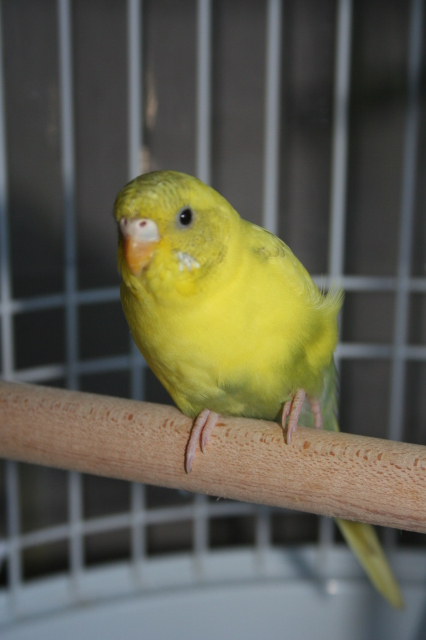 Budgie has broken foot?
Question
Maggies foot
Hi there! I got a baby budgie a f
Budgie has broken foot?
Question
Maggies foot
Hi there! I got a baby budgie a f
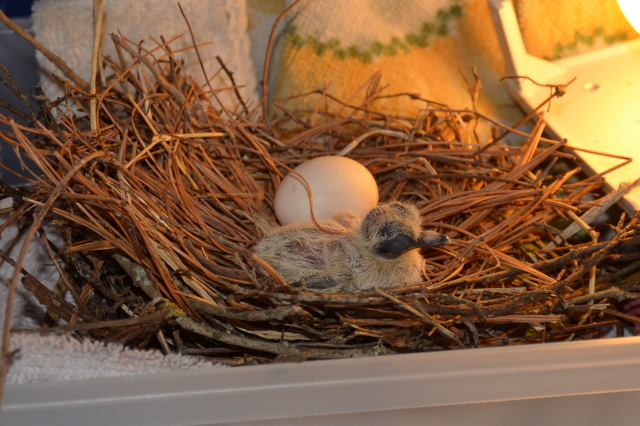 mourning dove
Question
baby mourning dove
Hello,
My boys found a baby
mourning dove
Question
baby mourning dove
Hello,
My boys found a baby
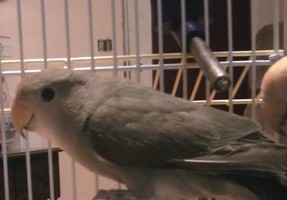 My odd lovebird
Question
Honey
I have a love bird that is approximately
My odd lovebird
Question
Honey
I have a love bird that is approximately
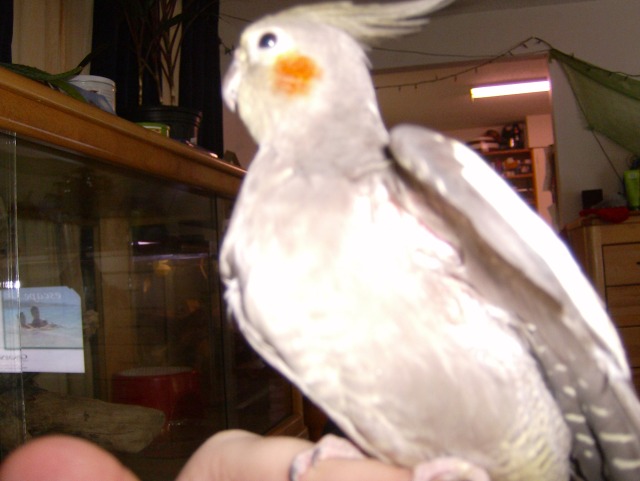 my cockitale mocha
QuestionQUESTION: I have a cokitale that will be 3 on A
my cockitale mocha
QuestionQUESTION: I have a cokitale that will be 3 on A
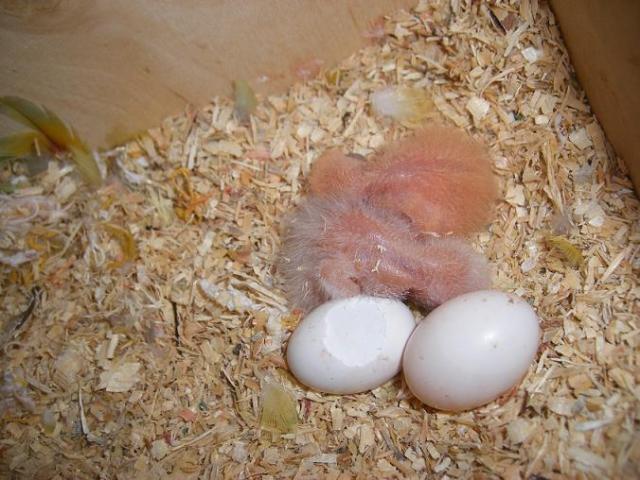 Eggs! :(
QuestionBroken Egg
QUESTION: I understand lovebi
Eggs! :(
QuestionBroken Egg
QUESTION: I understand lovebi